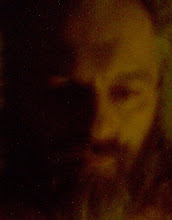Summary:
This Mark Twain work starts out a tad slow, and with quite a few opulent words that make you want to smash your head into the wall. This story is about a man and his battle with his own conscience. This particular character's conscience was, for lack of a better phrase, a "mean little bastard". But, from reading the story, one could easily figure out why.
Our tale started out going one direction with the narrator all excited about his dear Aunt's arrival. Then, it sharply veered off in another direction with the arrival of his shriveled conscience. The man went on to defend himself, or at least attempt defense, whenever his little friend called him to task over something he had done. It seemed like he was slowly losing his mentalities.
Finally, by the end, it seems he had completely lost his mind! He blasted on his beloved Aunt, then he went off on a major crime spree.
Comment:
When I first started reading this story, I wanted to punch myself in the brain. I just couldn't seem to get my head around it. I just kind of sat there, scratching my head, and saying to myself "huh?". Twain always seemed to have an issue with "ultrapolysyllablism" (I invented that word to deal with the use of too many long words!). I have always found that kind of wordy work hard to digest.
Don't get me wrong, I like Twain's flair for the dramatic. I just wish it wasn't so damned confusing!
What he did do quite well in this story is to show the conscience as a living, tangible entity. We all have a conscience we have to deal with, so I guess we can all relate. Another good point to the tale is how he slowly, painfully slowly, built up to the main character's complete loss of his marbles.
Even with all of my complaining, I have to say that the story was pretty good. Once I got past the beginning.
Tuesday, January 23, 2007
The short story; "Shades".
Summary:
If I read this right, the story is about a lone lamplighter. Although it takes a bit of an "eyewalk" to get to the point. Our tale starts out with a description of nightfall that makes the darkness come to life like an evil force from beyond. The "hero" of the story is the lamplighter. He "battles" the darkness of the night, that he disappears right back into.
The narrator of the tale thought that the lamplighter was interesting and mysterious enough to go searching for him. Towards the end, the lamplighter died as mysteriously as he lived.
At the very end of the tale, there seemed to be a "life goes on" feel to what the narrator says about night and the other lamplighters going about their duties.
Comment:
I really enjoyed the way that the twilight and the nightfall was given living attributes. Good writers are uncanilly able to pull off the concept of turning non-living entities into living, breathing beings. And the lamplighter is kept completely unknown and mysterious, which I think helps the story. I've always felt that a story should end with the reader saying to themselves "Oh, hey, wait! How does it end? I want to know more."
If I read this right, the story is about a lone lamplighter. Although it takes a bit of an "eyewalk" to get to the point. Our tale starts out with a description of nightfall that makes the darkness come to life like an evil force from beyond. The "hero" of the story is the lamplighter. He "battles" the darkness of the night, that he disappears right back into.
The narrator of the tale thought that the lamplighter was interesting and mysterious enough to go searching for him. Towards the end, the lamplighter died as mysteriously as he lived.
At the very end of the tale, there seemed to be a "life goes on" feel to what the narrator says about night and the other lamplighters going about their duties.
Comment:
I really enjoyed the way that the twilight and the nightfall was given living attributes. Good writers are uncanilly able to pull off the concept of turning non-living entities into living, breathing beings. And the lamplighter is kept completely unknown and mysterious, which I think helps the story. I've always felt that a story should end with the reader saying to themselves "Oh, hey, wait! How does it end? I want to know more."
Subscribe to:
Posts (Atom)
